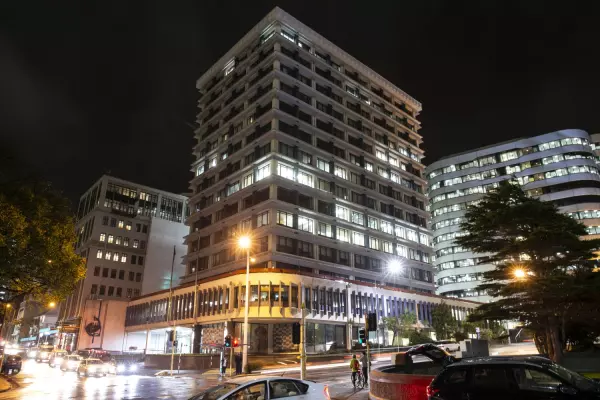UPDATE: RBNZ slashes rates, delays capital requirements for banks

The Reserve Bank of New Zealand slashed the official cash rate by 75 basis points to a record low 0.25 percent in a bid to shield the economy from the impact of the covid-19 virus and said they will stay there for least 12 months.
“The negative economic implications of the covid-19 virus continue to rise warranting further monetary stimulus,” it said in a statement.
"The monetary policy committee agreed to provide further support with the OCR now at 0.25 percent. The committee agreed unanimously to keep the OCR at this level for at least 12 months."
There will now be no monetary policy meeting on March 25, it said.
The New Zealand dollar was recently at 59.77 US cents from 60.57 cents in New York on Friday. It briefly touched 59.36 cents immediately after the bank's announcement.
Today's cut is the largest since the RBNZ began using the OCR as its benchmark monetary policy tool in March 1999.
The move came after New Zealand took the unprecedented move of virtually closing the borders on Saturday when Prime Minister Jacinda Ardern said everyone – Kiwis included – will have to isolate themselves for 14 days upon arrival to slow down the incidence of new cases of covid-19. The Pacific Islands were the exception.
“The negative impact on the New Zealand economy is, and will continue to be, significant. Demand for New Zealand’s goods and services will be constrained, as will domestic production. Spending and investment will be subdued for an extended period while the responses to the covid-19 virus evolve,” the central bank said.
Prior to today’s emergency cut, the RBNZ has only made an “unscheduled adjustment” once. It cut by 50 basis points on Sept. 19, 2001 following the Sept. 11, 2001 attacks on the World Trade Center in New York.
Regarding further cuts the RBNZ said “should further stimulus be required, a large scale asset purchase programme of New Zealand government bonds would be preferable to further OCR reductions."
ASB Bank noted “the RBNZ looks set to explore unconventional tools rather than to test the limits of the official cash rate.”
The central bank also said New Zealand’s financial system is sound, with strong capital and liquidity buffers, but faces significant uncertainties from the impacts of covid-19.
Reserve Bank deputy governor Geoff Bascand said the situation around covid-19 was evolving rapidly, and there is much uncertainty.
“To support credit availability, the bank has decided to delay the start date of increased capital requirements for banks by 12 months - to 1 July 2021. Should conditions warrant it next year, the Reserve Bank will consider whether further delays are necessary.”
Bascand said the bank was "taking this action now to help support lending in the economy at time when there is a lot of uncertainty."
"The Reserve Bank’s expectation is that banks will utilise this flexibility to maintain lending to households and businesses. Banks have significant buffers above current regulatory minimums, and we encourage them to use them,” Bascand said.
The announcement also comes ahead of tomorrow's announcement of a multi-billion dollar fiscal support package from the government.
There will be considerable inter-play between monetary and fiscal policy. The government will be borrowing heavily to support the economy, and the RBNZ can effectively provide the funding,” said ASB Bank.
Comments














